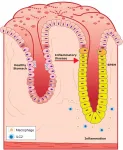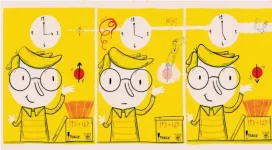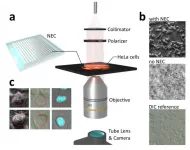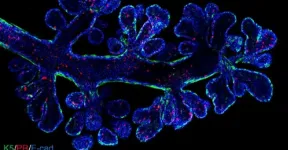Understanding the coping mechanisms adopted by some over 60s during the pandemic will play a key role in developing interventions to help tackle loneliness, isolation and wellbeing in the future.
The study, led by the Faculty of Health Sciences and Sport, surveyed 1,429 participants - 84 percent (1,198) of whom were over 60 - and found many had adapted to video conferencing technology to increase online contact with existing social networks, while others reconnected with previous networks. Participants reported that lockdown had led them to engage with neighbours and other members of their communities for the first time, while several said social distancing had brought an additional meaning to life, by highlighting what was important to them.
Published in the International Journal of Environmental Research and Public Health, the paper comes six months after the study - funded under the Scottish Government Chief Scientist Office's Rapid Research in COVID-19 programme - reported in its preliminary findings that social distancing had increased feelings of loneliness in older people.
Professor of Behavioural Medicine, Anna Whittaker, who led the study, said: "Our research found that the COVID-19 lockdown triggered feelings of loneliness in older people - with many experiencing less social contact and support. However, the study also highlighted positive outcomes, for example, lockdown encouraged some older people to embrace and engage with technology - such as Zoom, Whatsapp or FaceTime - to stay in touch with loved-ones or participate in exercise classes or religious groups. Those who engaged in such activity were able to prevent high levels of loneliness, therefore, helping older adults to increase their digital literacy and use of remote social interactions could be a really important tool for addressing loneliness.
"Participants also reported actively looking for new social contact while restrictions were in place - such as contacting friends who they had not spoken to in years and increasing interactions with neighbours and other members of their communities. Significantly, many of our participants reported that social distancing has actually led them to find new sources of satisfaction in life.
"Our study also highlighted that encouraging safe social contact through physical activity and engaging with people in the community may be an effective way to reduce loneliness, improve wellbeing, increase social activity, and improve social support."
The study - which involved a survey conducted between May and July 2020 - examined the impact of social distancing during the pandemic on loneliness, wellbeing and social activity, including social support, in Scottish older adults.
Participants were asked about the strategies they adopted to increase social interaction during this time and reported that the way they interacted with their friends and family, faith, chosen group activities and, to a lesser extent, their employer and colleagues, had changed. More than 300 participants mentioned 'Zoom' - the video conferencing tool - in their answers.
More than 150 participants reported that their religious gatherings had moved online - replacing face-to-face gatherings - while 91 said that social gatherings with family and friends had changed in favour of online 'games nights'. New activities included bingo and quiz nights, while other activities moved online - such as bridge nights, book clubs, choir rehearsals, and dance and exercise classes.
The role of community - particularly neighbours - was mentioned by more than 300 participants and some reported the common experience of getting to know previously unknown neighbours and increase interaction with others in the community at local shops or parks. A pleasant Scottish summer also supported such interactions, several said.
At least 100 people said social interactions were linked to their physical activities - such as time spent outdoors while walking for exercise, walking the dogs or active commuting.
Professor Whittaker added: "Our research underlines the importance of addressing loneliness and social support in older adults - but particularly during situations where risk of isolation is high. Although specific to the pandemic, this study has wider implications of helping us to understand the impact of social distancing and social isolation on older people.
"The findings may be applicable in the future - both in and outwith pandemic situations. In Scotland, the recommendations for improvement may be through encouraging older adults to get to know their neighbours better, getting involved with local buddying systems and community initiatives, including via digital means, and engaging in physical activity, such as daily walks in the community."
Brian Sloan, Chief Executive of Age Scotland, said: "While it may prove difficult to consider any aspect of the pandemic positive as such, it is important and worthwhile to reflect on what it has taught us, both about ourselves and society and about the necessary tools to tackle Scotland's increased levels of loneliness and isolation.
"For example, we've seen first-hand how important the community response has been in terms of supporting older people throughout lockdown and it has been inspiring to witness how people across the country stepped in and stepped forward to help those in need around them. Even as restrictions ease, we hope to see this sense of community spirit continue.
"The ongoing impact of COVID-19 has also demonstrated just how important increased digital inclusion is and how easily those without access to technology can feel out of the loop. It's reassuring to see so many older people reporting that they have been able to embrace and engage with technology to stay connected and active.
"However, it's equally important to ensure those who are unable or do not wish to use the internet have alternative ways to stay connected to their communities and support networks.
"As we take steps towards recovery together, it is vital that no one is left behind and those most impacted are supported to play a full part in society again.
"We know we will be living with the ongoing effects of lockdown loneliness for a long time to come, and this research will be incredibly valuable when considering how best to tackle loneliness and isolation and to improve the wellbeing of older people going forward."
INFORMATION:
Professor Whittaker was supported in the research by Stirling colleagues: Dr Simone Tomaz, Dr Pete Coffee, Dr Gemma Ryde, Bridgitte Swales, Dr Kacey Neely, Dr Jenni Connelly, Dr Andrew Kirkland, Dr Louise McCabe, Dr Karen Watchman, Dr Federico Andreis, Jack Martin, and Ilaria Pina.





